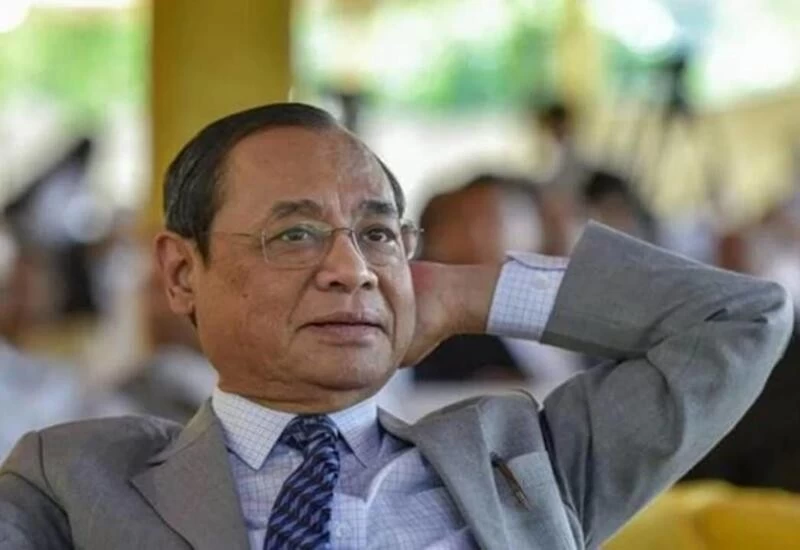New Delhi: The Ram Janmbhoomi-Babri Masjid land dispute at Ayodhya was the "most fiercely-contested cases in India's legal history" in which every point was "hotly" debated and "passionately" argued by the lawyers, former Chief Justice of India Ranjan Gogoi, who headed the bench that delivered the historic verdict, has said.
In the unanimous verdict, the five-judge bench on November 9 last year cleared the way for the construction of the Ram Temple at the disputed site at Ayodhya, and directed the Centre to allot a five-acre plot to the Sunni Waqf Board for building a mosque.
In a message to journalist Mala Dixit, who has authored a book on the Ayodhya hearings and the decision, the former CJI said that multi-dimensional issues were decided on the basis of voluminous records.
"One of the most fiercely contested cases in India''s legal history, the Ayodhya case, will always hold a special place. Multi-dimensional issues called for a final resolution on the basis of voluminous records including oral and documentary evidence which had to be translated from a host of different languages.
"Every point was hotly contested and passionately argued by a renowned group of lawyers who represented the contesting parties," Justice Gogoi said.
Ms Dixit has penned the book titled "Ayodhya Se Adaalat Tak Bhagavaan Shri Ram", chronicling details of hearings and the decision. It was released here on Friday.
Justice Gogoi, who conducted the hearing for 40 days in the historic case, said that reaching to the final verdict was a challenging task for a wide variety of reasons.
"The cooperation of eminent lawyers and their assistance to the bench over a period of 40 days of continuous hearing was unprecedented," he said in his message.
Former Supreme Court judge Gyan Sudha Mishra, ex-high court judge S R Singh and journalists B R Mani, Ram Bahadur Rai and N K Singh were also present at the event held at the Indira Gandhi National Centre for the Arts.
The top court, in its decision, handed over the possession of the disputed 2.77 acre land rights at Ayodhya to the deity Ram Lalla, who was one of the three litigants in the case.


